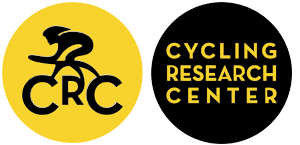Exercise Physiology and Nutrition Knowledge of Collegiate Cyclists
Abstract
Introduction
Cycling is an endurance sport that lends itself to numerous objective and quantitative data measurements. Measuring power, heart rate and other physiological factors is common among cyclists of all levels. The ability of collegiate cyclists to interpret and apply the data has not been thoroughly evaluated. The purpose of this pilot study was to evaluate the exercise physiology and nutrition knowledge of United States collegiate cyclists.
Methods
A pool of 143 collegiate cyclists, members of USA Cycling, agreed to participate in a 25 question, multiple-choice questionnaire that assessed various aspects of their knowledge of exercise physiology and nutrition. Subjects were both male and female, and came from a variety of collegiate riding backgrounds. Questions were administered via an online platform and grouped into two categories, exercise physiology and nutrition.
Results
Collegiate cyclists scored 79±17% correctly in the nutrition category and 64±20% in exercise physiology. Responses to individual questions within each category provided interesting data, with the majority of the athletes demonstrating good understanding of fuel sources, energy systems and cycling economy. More mixed responses were found in regards to knowledge of supplement regulation, knee angle recommendations and high altitude training
Discussion and Conclusions
Subjects scored well on questions regarding fuel sources, energy systems and cycling economy. Several questions received mixed feedback in this group of collegiate cyclists. Most notably on the topic of supplements, in which there is a concern that riders have poor understanding of the lack of supplement regulation in the United States. Increased cyclist awareness and education are needed to better inform collegiate cyclists about supplement regulation that can potentially influence health, performance and participation. Limitations of our study include heterogeneity of USA collegiate cyclists, which included all disciplines, and the lack of consensus within the literature on particular questions. Further research looking at the knowledge base of cyclists from different disciplines is indicated. Our pilot study indicated that collegiate cyclists would benefit from improved education on issues regarding exercise physiology and nutrition, which can impact performance and health in competitive cycling.
Downloads
Published
How to Cite
Issue
Section
Copyright (c) 2018 Journal of Science and Cycling

This work is licensed under a Creative Commons Attribution-NonCommercial 4.0 International License.
Authors contributing to Journal of Science and Cycling agree to publish their articles under a Creative Commons CC BY-NC-ND license, allowing third parties to copy and redistribute the material in any medium or format, and to remix, transform, and build upon the material, for any purpose, even commercially, under the condition that appropriate credit is given, that a link to the license is provided, and that you indicate if changes were made. You may do so in any reasonable manner, but not in any way that suggests the licensor endorses you or your use.
Authors retain copyright of their work, with first publication rights granted to Cycling Research Center.






